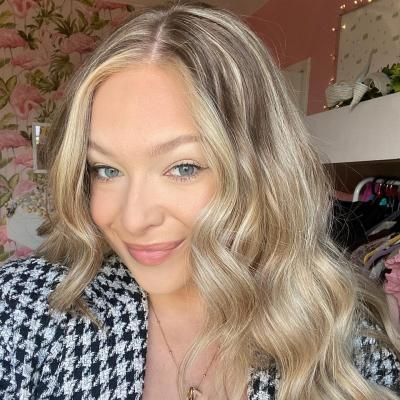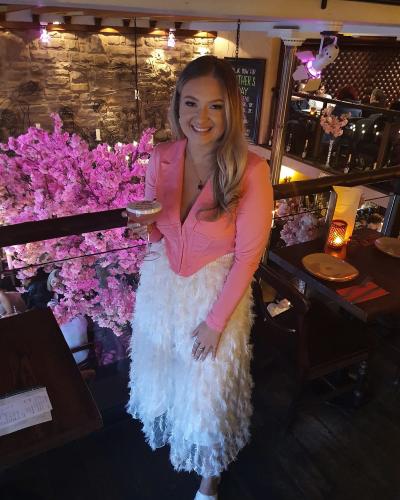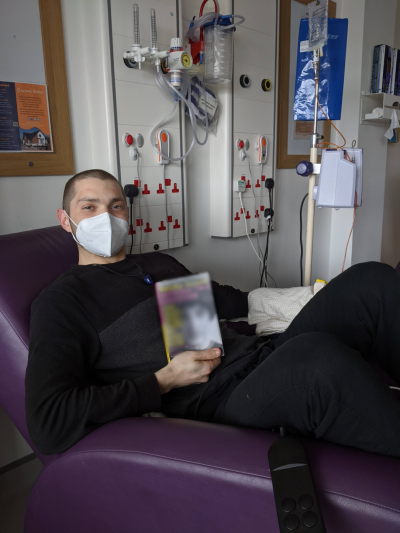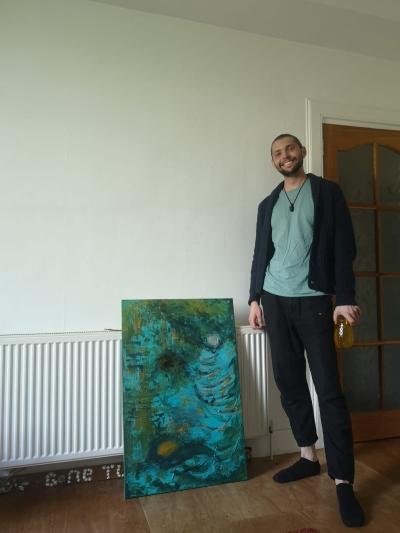Young people share powerful cancer and mental health stories at Scotland roundtable event
In March 2022, as part of Teenage Cancer Trust’s #NotOK campaign, young people supported by the charity shared their stories at a roundtable with the Cabinet Secretary for Health and Social Care in Scotland, helping secure vital support for the campaign.
- Published:
- Category:
- Mental health Policy Policy and campaigns Wellbeing
On Wednesday 9 March, Teenage Cancer Trust organised a roundtable with the Cabinet Secretary for Health and Social Care in Scotland, Humza Yousaf MSP, where eight remarkable young people with cancer powerfully shared their experiences of mental health and accessing psychological support.
Gonzalo and Nicole, who both attended the meeting, have shared their experiences of accessing psychological support in Scotland, as well as sharing their thoughts having met the Cabinet Secretary.
Nicole
“My name is Nicole, and in 2018 I was diagnosed with stage 3a Hodgkin lymphoma. Fortunately, I had the biggest and best support network I could have asked for, and perhaps that is the reason seeing a psychologist never crossed my mind. However, since then, psychological support from a teenage and young adult (TYA) psychologist has greatly improved my quality of life.
“After I was in remission, I started to feel immense feelings of anxiety which manifested through my university course and other daily mishaps. Just before Christmas, during exam time in December 2021 I decided to reach out to my clinical nurse for psychological support where I was referred to a TYA psychologist. She taught me coping mechanisms and how to change my perception of my thoughts and feelings.
“My quality of life has greatly improved and very seldom do I ever feel anxious. I owe my feelings of peace and happiness greatly to the psychologist who guided me. I was blown away to find out that there is only one other person in the whole of Scotland who is in the position to treat and guide young adults like myself who have or have had a cancer diagnosis. Everyone should be able to get the support they deserve.
“In March, I attended a meeting held by Teenage Cancer Trust with the Cabinet Secretary for Health and Social Care, alongside seven other young people who have or have had cancer. The meeting consisted of introductions, identifying gaps, and discussing the need for future plans to regenerate the psychology department, securing the wonderful posts which are in place and delivering further ones throughout the length and breadth of Scotland.
“After meeting with other young people, teenage and young adults with cancer, specialists and the cabinet secretary I felt liberated in the hope that more can be done, more TYA psychologists may be put in place and other young people will receive the help they so greatly deserve from the very beginning of diagnosis and/or treatment. I really hope steps are made in the future to provide secure and reliable treatment options for young people who have or have had cancer in supporting their mental health. You must glow from within to heal outwards.”
Gonzalo
“I’m Gonzalo, I’m currently undergoing chemotherapy for Hodgkin lymphoma, which was at stage 4 before starting treatment. My experience hasn’t been easy, but it’s been better than I originally expected. Since the diagnosis, I’ve been resolved to take this as a growing experience.
“When I got the diagnosis, I asked my oncologist and support team to refer me somewhere for psychological support; the early shock was when I would’ve most needed it, but I also knew it’d be immensely helpful throughout treatment and beyond. Two months later, I started seeing a counsellor through the charity CCLASP.
“After starting treatment, I was plagued by a feeling of being stuck. Because of a weakened immune system I was recommended not to use public transport and avoid crowded places, and because of the chemo and the stress it put on my body, some muscles and joints became inflamed making walking and cycling difficult. I felt completely locked in.
“With the help of a counsellor, I realised how much this feeling of being stuck was affecting the rest of my life; we worked out how to accept the things I couldn’t change, and found strategies to regain a sense of freedom.
“I’ve used this psychological support as part of a larger toolkit for mental health. Other things that have really helped me throughout this journey have been daily meditation, journaling, and a creative practice. My experience has still been bumpy, but with counselling I can catch problems earlier and work through them more easefully; and this is something I’d want other young people with cancer to have the ability to do.
“To address the lack of psychological support for some young people with cancer, seven other patients, ex-patients and I met with Humza Yousaf, Cabinet Secretary for Health and Social Care. Sitting in a virtual roundtable with seven other patients and ex-patients and hearing their stories shared with full honesty was powerful.
“Besides feeling like what the eight of us said had an impact, relating to others’ parts of this experience that (luckily) few others can relate brought a sense of community. It was my first time meeting more than one patient at a time, and it showed me the importance of hearing other people’s stories as you go through this. Also, that relating to others is another form of psychological support.
“If you still fear reaching out for psychological support, or it’s tabooed where you’re from, this is the opportunity to look past that and use it as the great tool for healing and growth that it can be. This is a time where you should put your health, both physical and mental, as your highest priority, and realise that by taking care of your health you’re also taking care of the health of those caring for you. You can also take this psychological support as an opportunity to do other inner work, to unravel other things that have been affected by the diagnosis. This really can be a growing experience if you use the tools and support that people offer.”
Following the meeting, the Cabinet Secretary made a public commitment to prioritise ensuring all young people in Scotland can access specialist psychological support.
This is a huge campaign win for Scotland, and wouldn’t have been possible without everyone who’s supported #NotOK so far – thank you.




